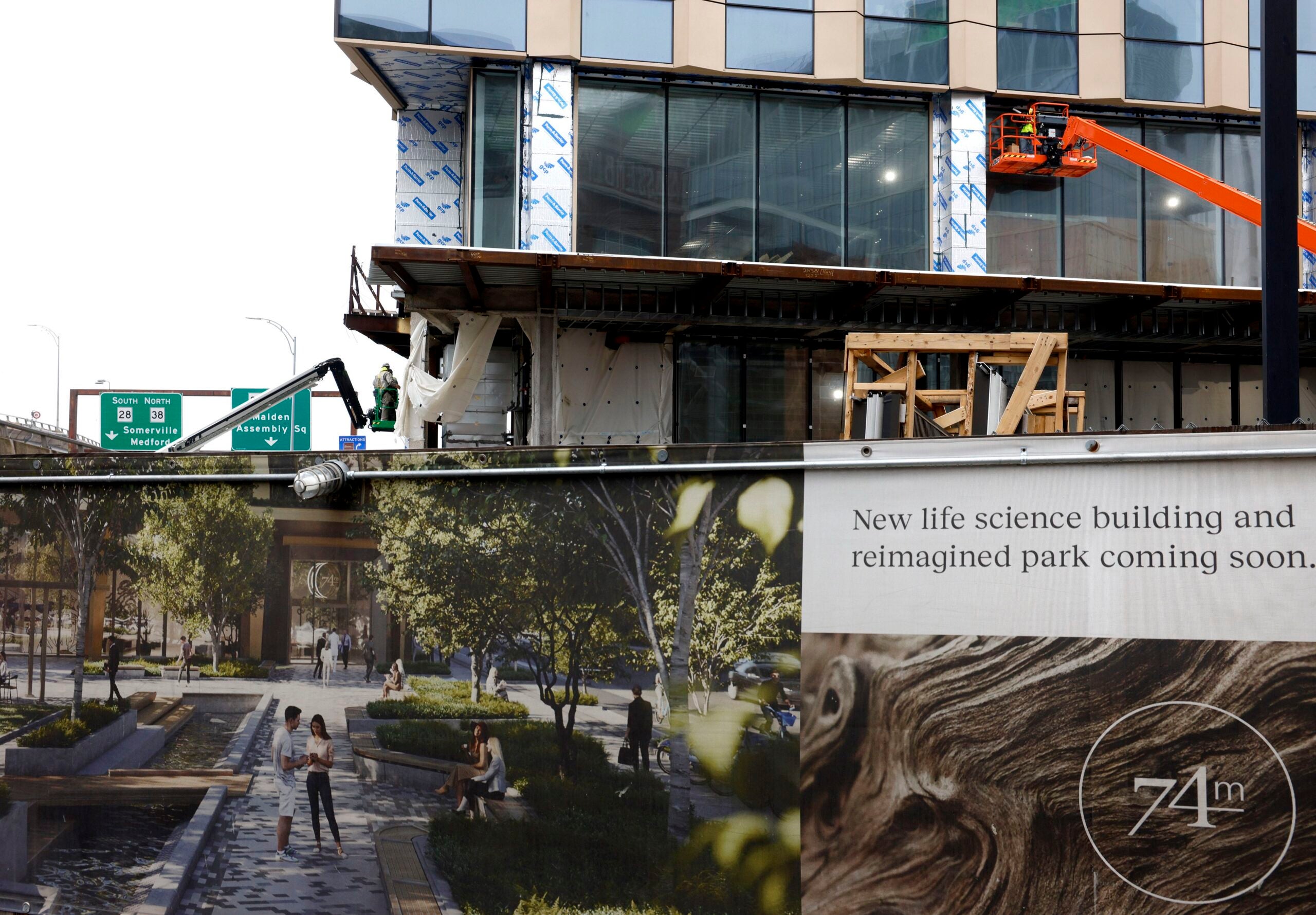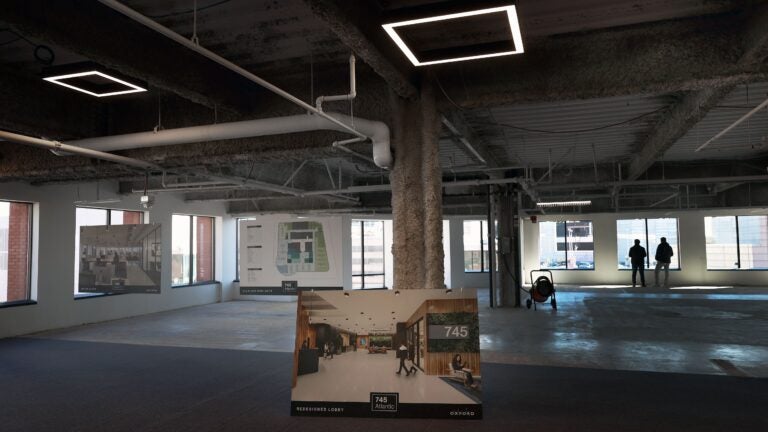The Boston Globe
The region’s supply of life-science real estate exploded just as the once-booming industry hit a slow patch. Now what?
Around this time three years ago, while most of us navigated pandemic life, real estate developers across Greater Boston looked to life-science laboratories, and saw dollar signs.
The white-collar office workers who’d long filled downtown towers were largely staying home (unless they worked in commercial real estate). The future of cities had rarely been murkier.
But many biotech companies, like Cambridge’s Moderna, were busier than ever, and growing fast. Life-science companies, and the lab buildings that house them, looked like a sure bet for investors. Money poured in to drug companies by the billions — from venture capitalists, the stock market, the National Institutes of Health. And big real estate investors followed, launching a wave of speculative lab development all over Greater Boston.
Now many of those buildings are nearing completion, and opening empty, into a very different world for the life-science industry. Investment has slowed. Cuts are more common than hiring sprees. And there’s more lab space on the market than there has been in decades — a costly reminder that economic forces often move faster than construction timelines.
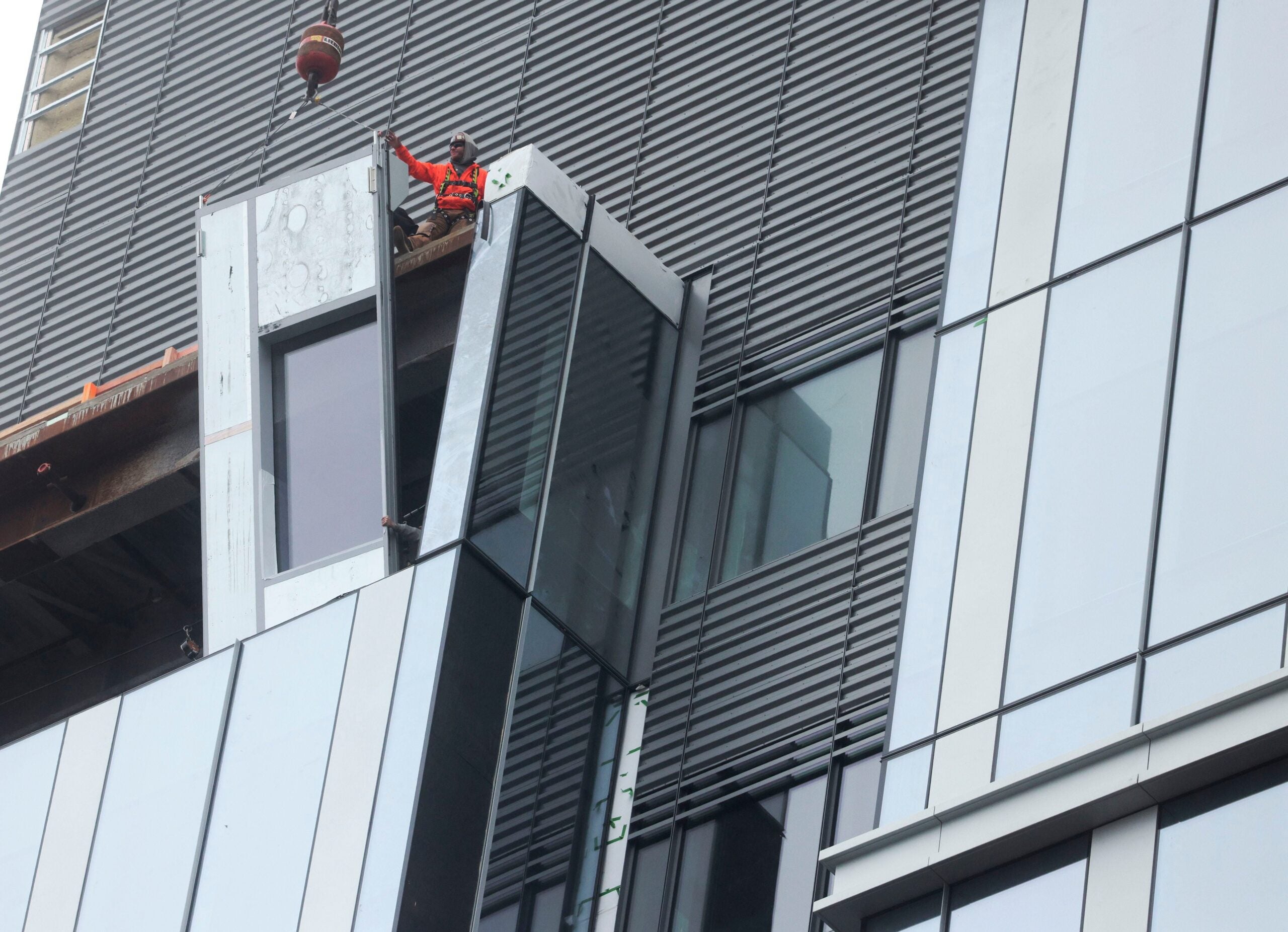
To be sure, Greater Boston remains a global epicenter of the life-science industry, and developers and drug companies alike remain bullish on its long-term prospects here. But the sudden, massive overhang of supply — even as more lab buildings rise from the dirt — threatens to quickly cool one of the last remaining hot spots of Boston’s long-running building boom.
“A lot of new construction is going to have a very, very hard time getting leased,” said Mark Winters, a veteran life-science real estate expert and vice chairman with the brokerage Newmark.
In just two years, the amount of lab space in Greater Boston has ballooned by 57 percent, according to research from real estate brokerage firm Colliers, with nearly 18 million square feet of new space opening from the Seaport to Worcester. For comparison, that is nine times as much as opened between 2019 and 2021. Lab now accounts for more than one-fifth of all office and life-science space in Eastern Massachusetts.
Why did we build so much, so fast?
“People were chasing that pot of gold at the end of the COVID life-sciences rainbow,” said Bob Coughlin, managing director for life sciences at the brokerage JLL.
Flash back to early 2021. Office towers were largely empty. Hotel visits had plummeted. But researchers at drug labs were still coming in to conduct work that’s impossible to do from home — much of it dedicated to tackling COVID and other life-altering diseases.
Investors took notice. In 2021, biopharma companies in Massachusetts received a staggering $13.7 billion in venture capital funding, up 70 percent from 2020, according to the Massachusetts Biotechnology Council, an industry trade group.
The companies getting that funding would need homes, and real estate investors saw life-science space as a growth area. Money flowed in. One example: In early 2016, investment behemoth Blackstone spent $8 billion to acquire life-science developer BioMed; by late 2020, a new investment deal valued the company at nearly twice that much: $14.6 billion.
Even developers who’d never built lab space before were eager to get into the game, and before long, warehouses, old office buildings, even shopping malls were being proposed for redevelopment into lab space. Communities like Somerville, Watertown, and Waltham, eager to build their tax base, happily signed off. Somerville alone approved more than 600,000 square feet of life-science projects, and has 2 million more square feet due to come online within the next year or so.
But things have changed. Venture capital funding for biopharma has dropped by nearly $6 billion — around 44 percent — since 2021. Companies that used to lease more space than they’d need in anticipation of future growth are now holding their purse strings tighter. Tenants have more options, and need less space than just a few years ago.
“If you are a tenant, it’s a good time to be in the market,” said Jeff Myers, director of research at Colliers. “You’re not forced to wait years for builds to be delivered. . . . Now you have choices that are readily available.”
It’s not just Boston facing a slowdown. Lab vacancy rates have also surged in other major life-science markets such as San Francisco and Seattle.
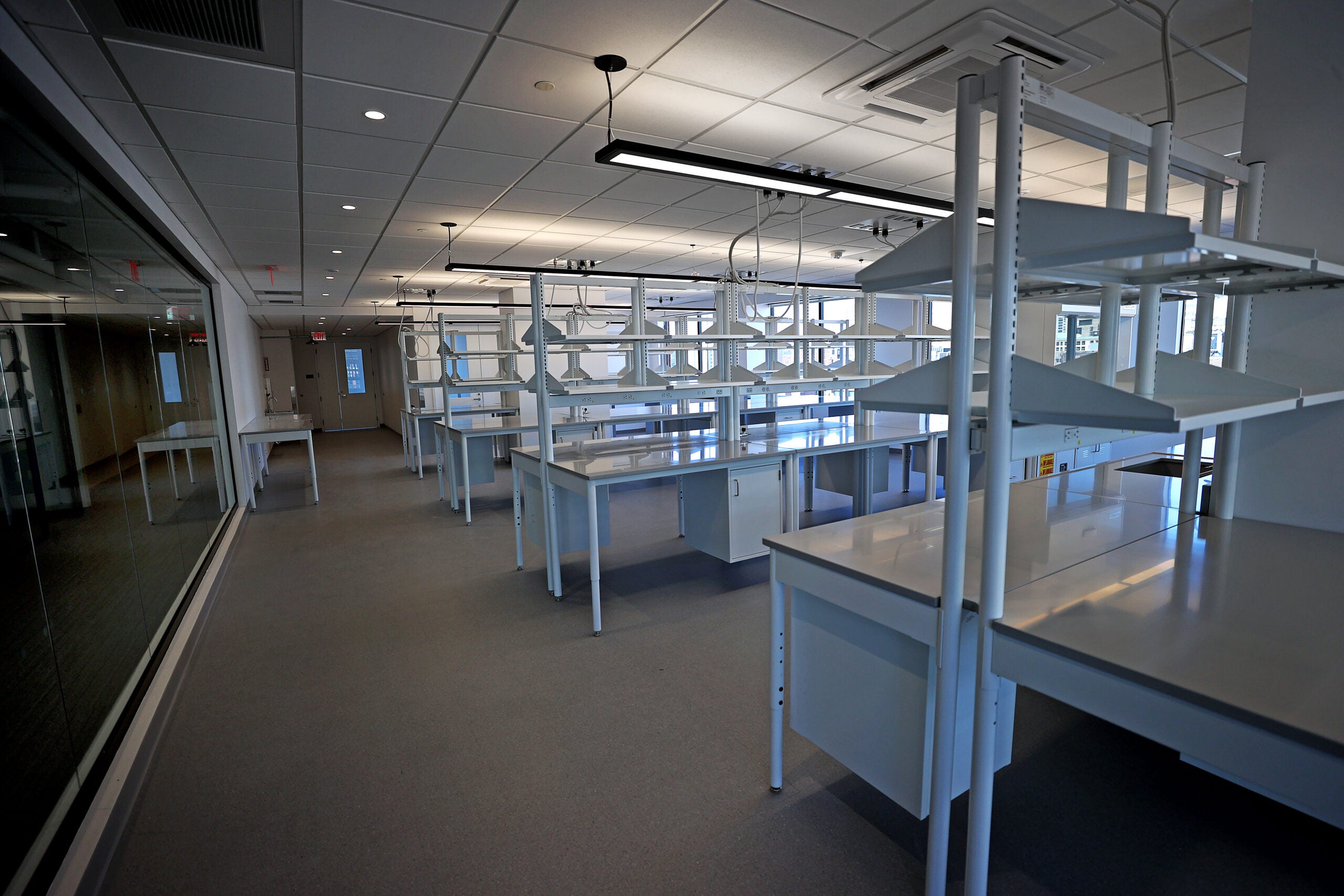
Of course, there are some big projects that will open fully leased, like Moderna’s new headquarters, the US hub for Takeda Pharmaceuticals, and a new AstraZeneca research facility, all under construction in Kendall Square. But for each of those there’s a project like Watertown’s 66 Galen St. or a pair of towers along Middlesex Avenue just outside Somerville’s Assembly Square, prominent above Interstate 93: all newly built labs that are, as of now, unleased.
Some projects have been scrapped, like labs once slated for a space previously occupied by the Neiman Marcus at the Natick Mall. (It will now be a pickleball club.) An 11-story brick building on Atlantic Avenue across from South Station — once the nation’s largest WeWork location — recently wrapped construction on its conversion to lab space, but only 15,000 of its 155,000 square feet is leased.
While developers expect demand will return, they’re also in the business of making money. Empty spaces that cost a lot to build are not viewed kindly on balance sheets. For example, longtime biotech developer Alexandria Real Estate Equities has in the past year sold off several potential lab sites at substantial losses, including Newton’s Riverside Center and two South Boston properties.
As for the developers holding empty buildings, they say this too shall pass, citing “patient capital” and the cyclical nature of the real estate market.
“With a two-decade history of successfully developing life-science properties, we have the perspective and the ability to take the long view,” said Stephen Davis, president of The Davis Cos., which built 66 Galen St. in Watertown. “The recent market has certainly been disappointing, but we are believers in the future of discovery and the life-science industry in Greater Boston.”
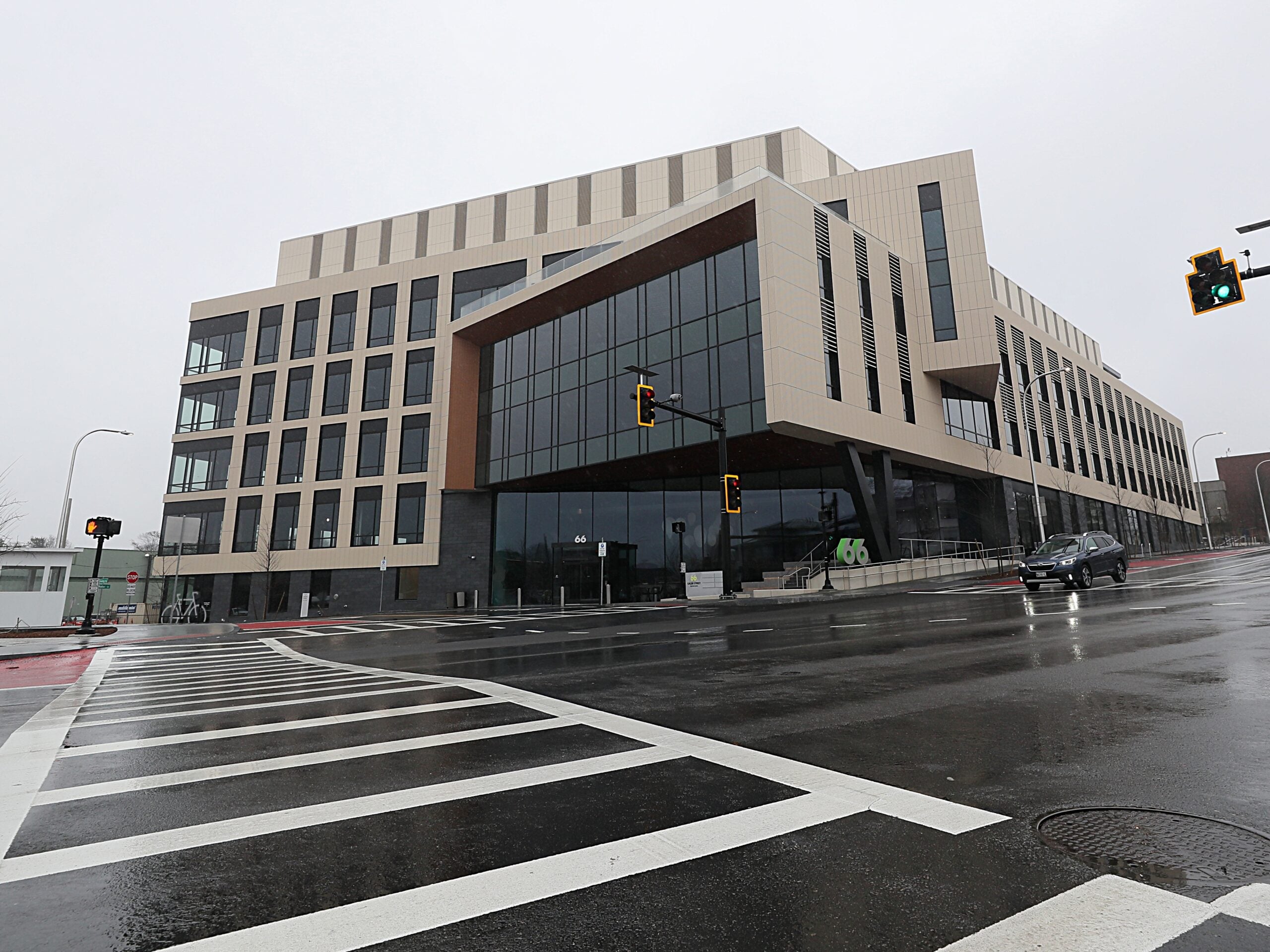
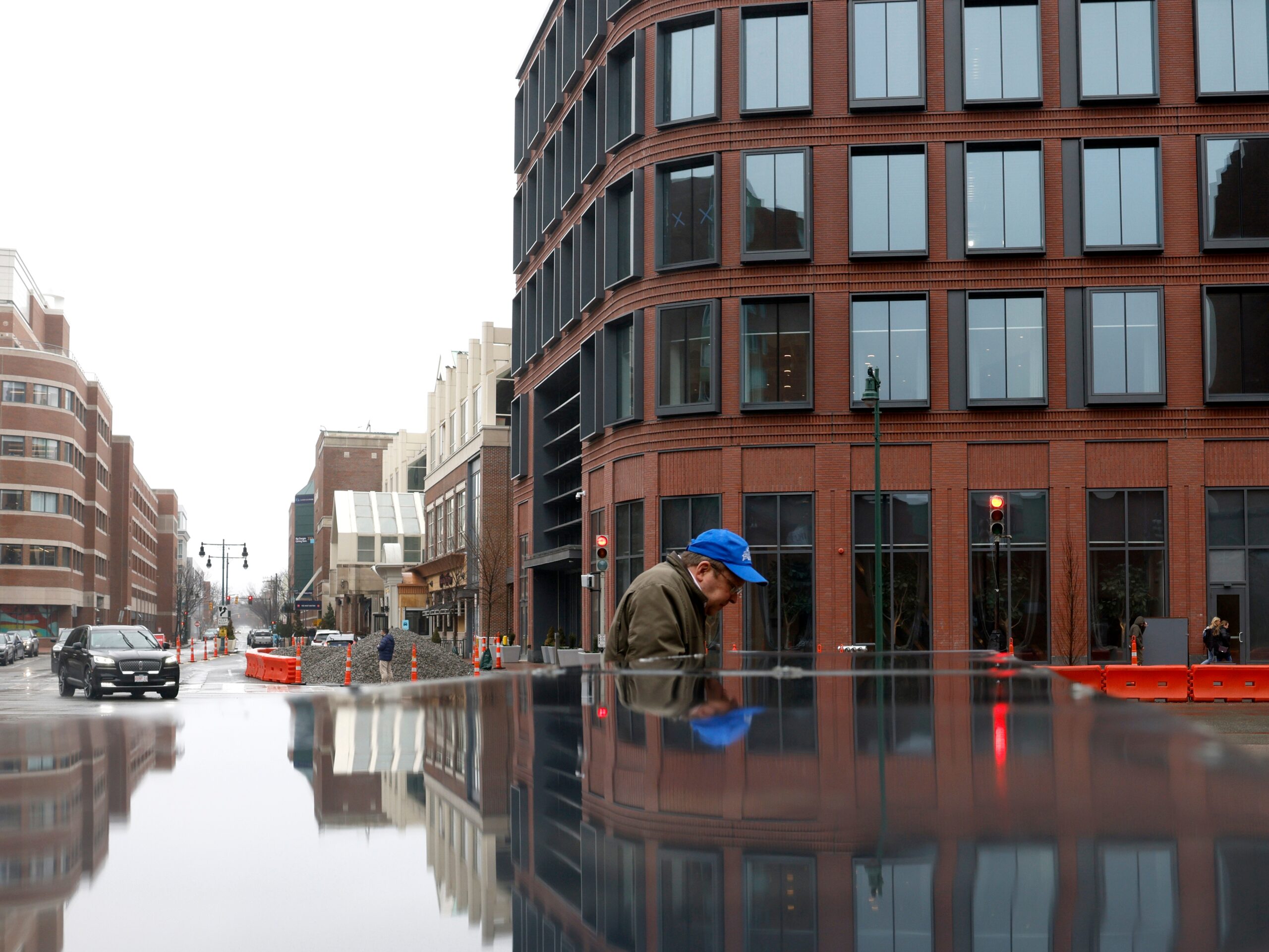
And South Carolina-based developer Greystar — even as it finishes one of those still-empty towers in Somerville — has proposed two even larger lab buildings nearby.
Indeed, there have been some wins, even in markets less established than Kendall Square. A four-story lab at 100 Chestnut St. on the edge of Somerville’s industrial Inner Belt is now 90 percent leased. Developer North River Leerink has plans to carve a neighborhood out of the industrial zone. The potential for a large-scale campus, combined with proximity to the Green Line extension and Kendall Square, has the North River Leerink crew confident the project will attract tenants as the life-science ecosystem revs back up.
“It’s not anywhere near where it was during the pandemic, but it’s getting better,” said Jeffrey A. Leerink, chief executive of health care and life-science investment bank Leerink Partners. “If you had to bet where it’s going to continue to be strong, I’d say: right here.”
Still, on a recent tour of that building, several empty labs in Somerville and beyond were visible from the fourth-floor windows. Leerink’s partners paused to point out another building they built nearby. It’s the headquarters of Form Energy, where Governor Maura Healey recently announced a $1 billion state fund to invest in the climate tech industry, alongside $1 billion more for life sciences. A few days prior to Healey’s announcement, the battery tech maker laid off staff, the Boston Business Journal reported.
With so much supply out there, competition for new tenants is and will stay fierce.
“Over the long haul, there will be growth in the market to absorb space,” Myers of Colliers said. “But it will take time.”
